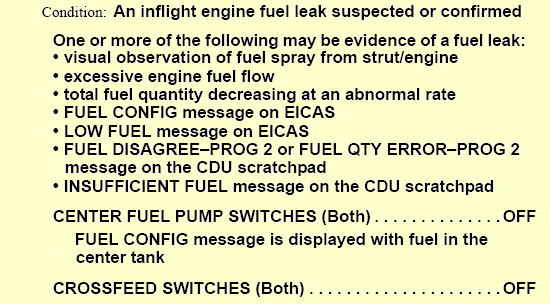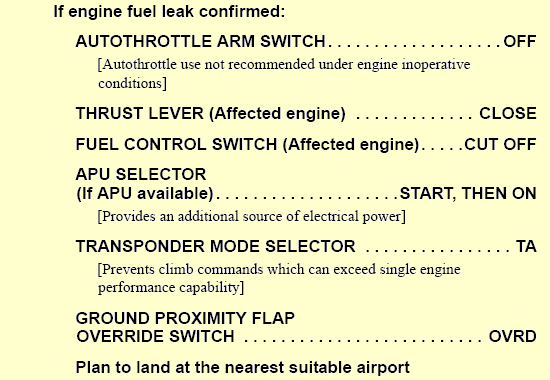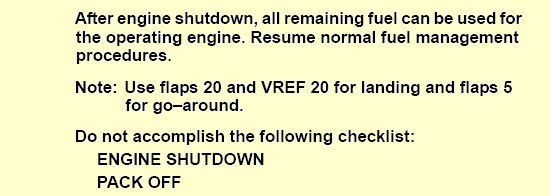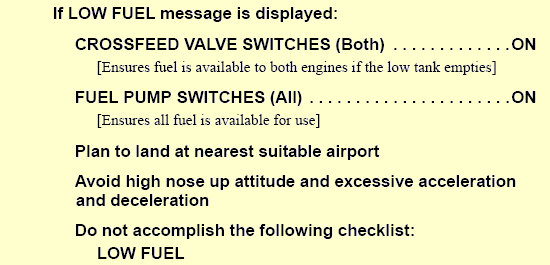Fuel System - Fuel Leak 
FCTM The following non-normal checklist assumes the leak is between the strut and the engine and can be isolated by shutting down the affected engine.
ENGINE FUEL LEAK
Note: Remember to assess any other airframe damage or system malfunctions. You must decide whether the fuel leak indications are related to airframe damage, and thus point to a fuel tank leak, or whether you have a leak between the engine spar valve and engine. 
Note: A fresh evaluation must be made of the symptoms using tank-to-engine feed. 
Note: The assumption is that you do not have an ENGINE FUEL LEAK. 
Note: The USE prompts are displayed on PROGRESS PAGE 2 when a FUEL DISAGREE-PROG 2 or FUEL QTY ERROR-PROG 2 message is displayed. 




|
Boeing
The FUEL LEAK non-normal procedure was developed as a consequence of several inflight events where engine fuel system component faults resulted in external fuel loss. This procedure contains those steps specific to identification and isolation of an engine fuel leak. With the single exception of the JMC event there have been no operator reports of an external fuel leak. The Airplane Maintenance Manual (AMM) contains procedures intended to identify and isolate external fuel leaks in advance of the airplane being dispatched. This, we believe, substantially reduces the probability of an inflight event.
The lack of service history, to provide a focus for an external fuel leak procedure, presents a formidable challenge. Establishing an unambiguous identification/isolation procedure would involve multiple conditional steps with an underlying risk of substantial crew distraction from the task of flying the airplane. At the present time, Boeing has no specific plans to proceed with development of an external fuel leak procedure. We intend to continue to monitor service history with the intent of revisiting this issue should service experience so warrant.